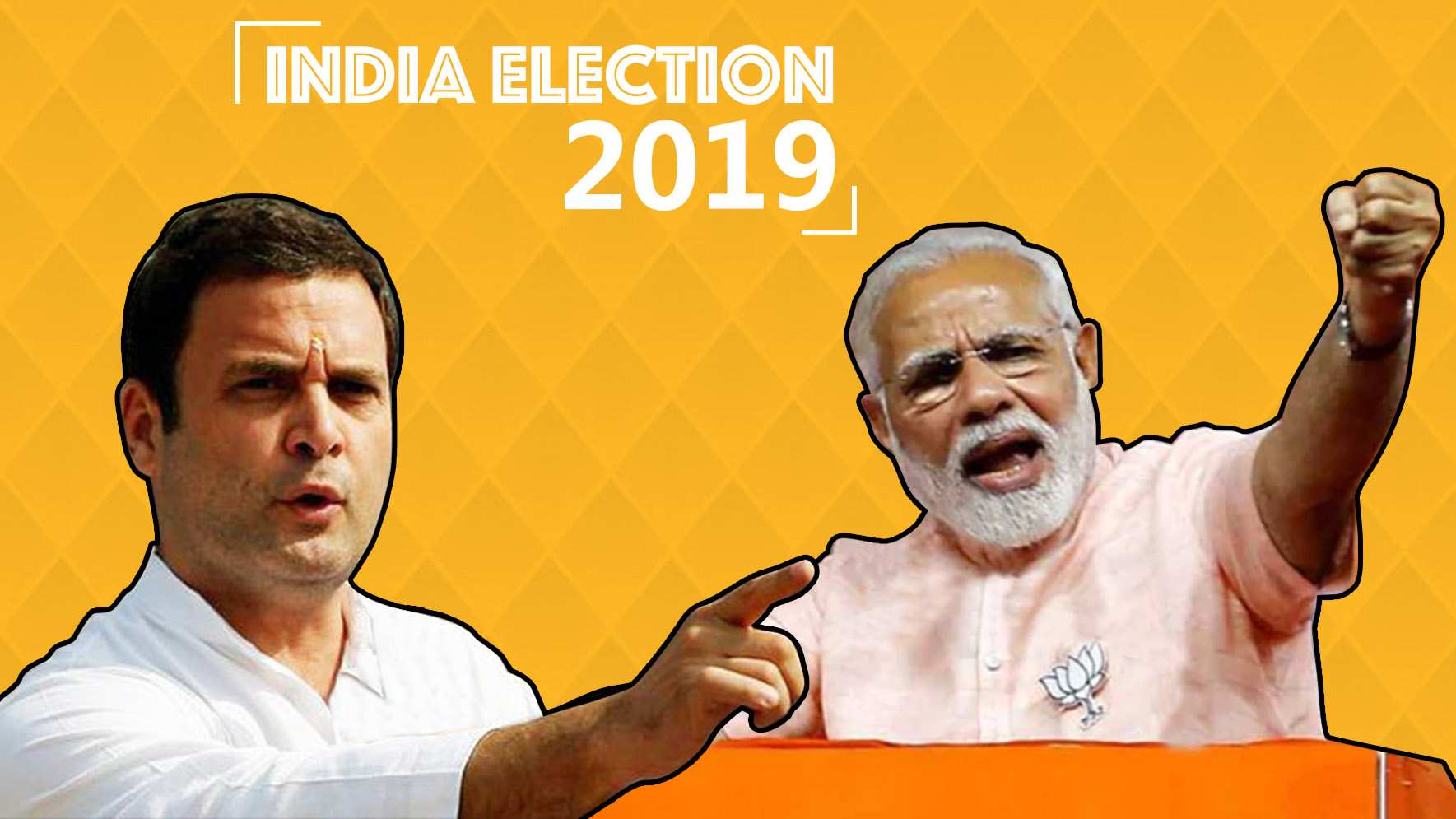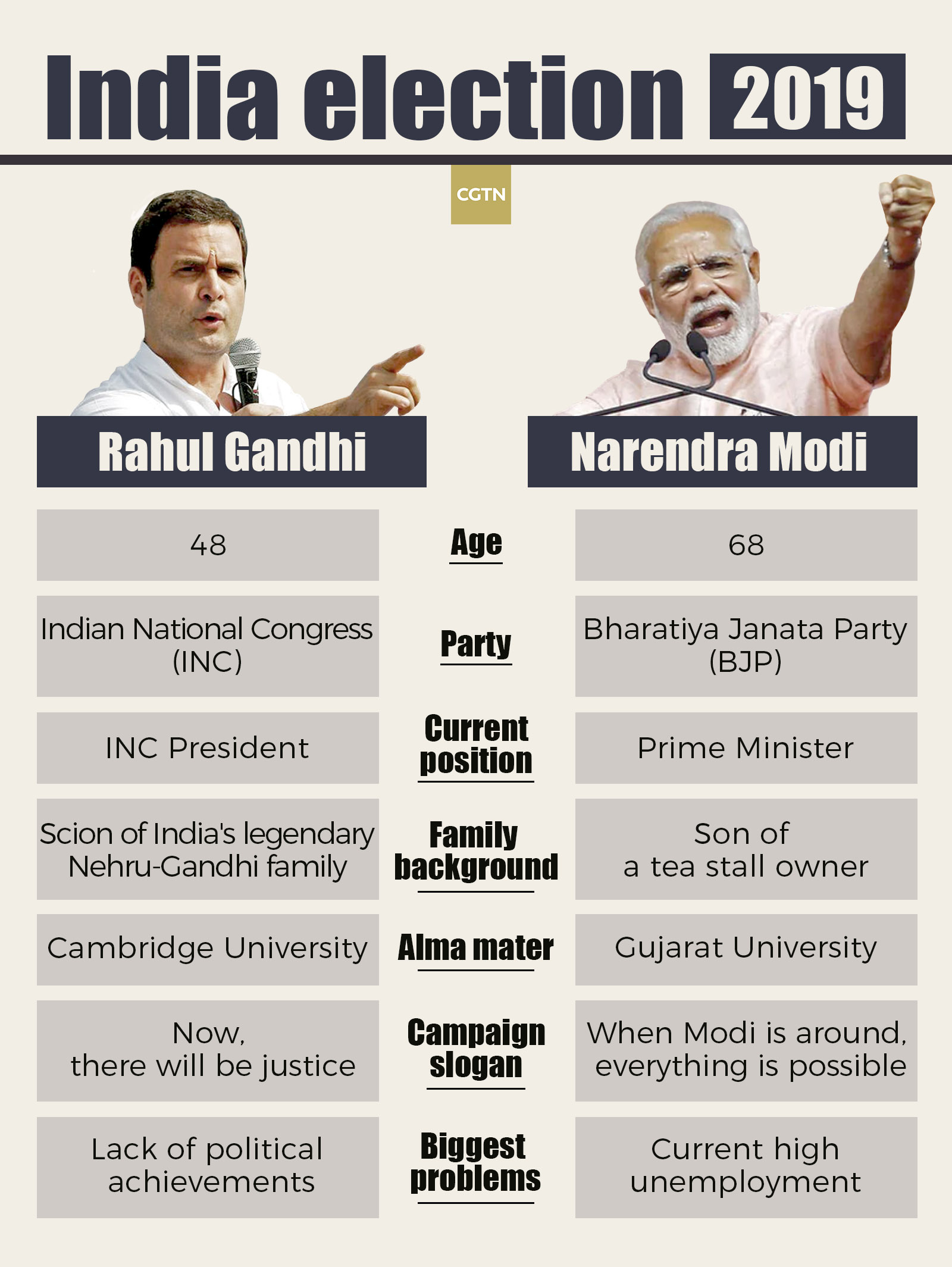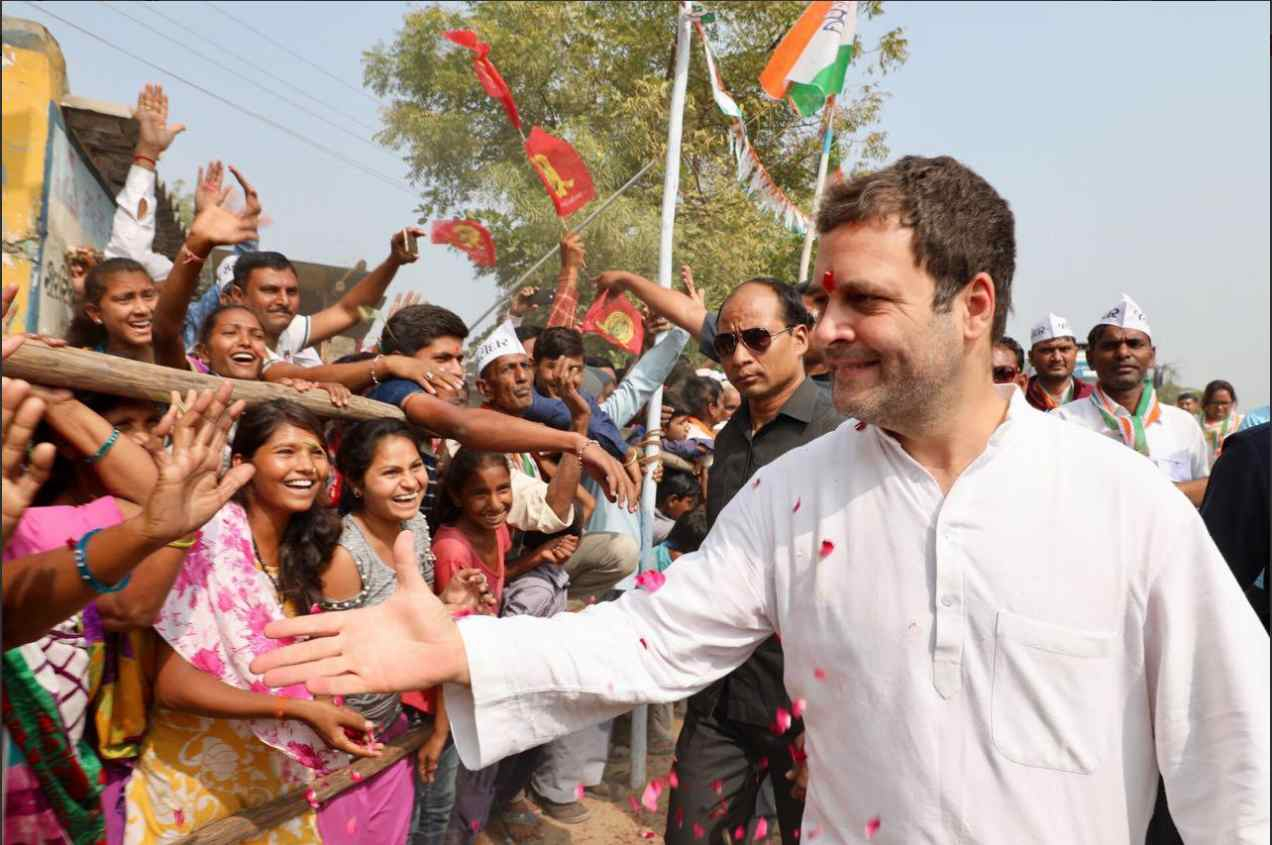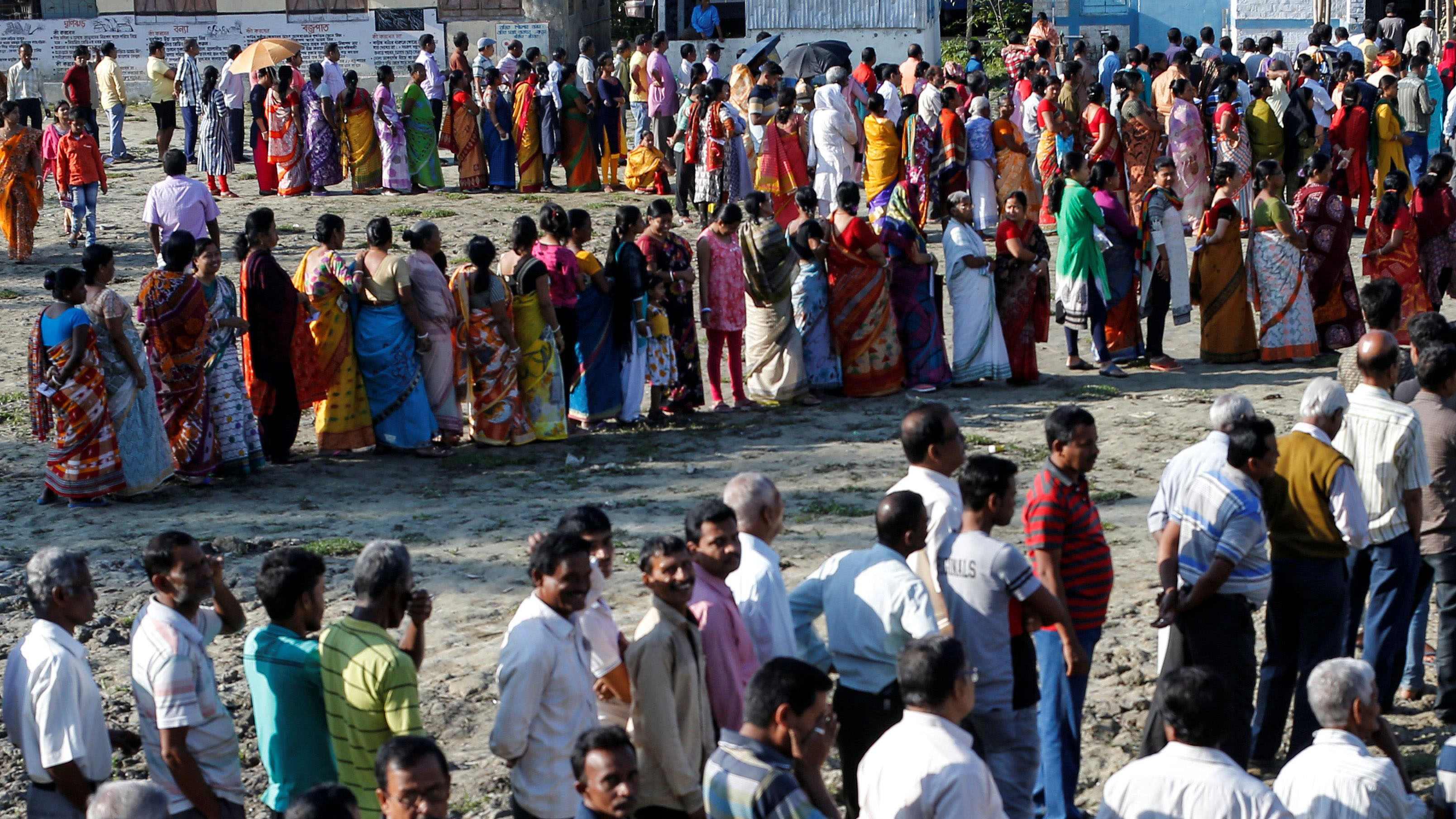
Asia Pacific
08:52, 18-Apr-2019
India election 2019: Is the Gandhi scion a threat to Modi's charm?
Updated
21:06, 18-Apr-2019
By Li Zhao

Some 900 million voters. Five weeks. Seven phases. India's general election is a democratic exercise of epic proportions.
The general election is the largest such vote the world has ever seen – and the stakes are high. Will current Prime Minister Narendra Modi win a new mandate to run the country for another five years? Or will his main rival, Rahul Gandhi, the fourth-generation scion of the Nehru-Gandhi political dynasty, carry forward his family legacy?

Modi
The 68-year-old and his Bharatiya Janata Party (BJP) swept into power in 2014, a landmark victory that had not been seen in 30 years. On the campaign trail, Modi promised corruption-free "good days" and a stronger economy.
Over the following five years, the Modi administration carried out a slew of reforms — specifically in the economic sector — including the controversial demonetization act (an attempt to stamp out the black market economy) and the introduction of national goods and services tax.
Yet not everyone's benefiting from those policies.
According to Oxfam, a NGO fighting against inequality, over 70 percent of all wealth earned in 2017 went to the richest one percent of Indians. Besides, unemployment remains a chronic problem for the country's young folks.

People queue outside a bank in Gurgaon, India, November 24, 2016. /VCG Photo
People queue outside a bank in Gurgaon, India, November 24, 2016. /VCG Photo
Data from India's Ministry of Statistics and Program Implementation shows that most of the country's rural households remain under heavy debt. According to Gallup, 41 percent of rural Indians reported they were unable to afford food in 2017.
Modi is making his final push in every single possible way, and like what he did five years ago, he took to social media.
On March 13, he posted 29 tweets within one hour, tagging a variety of political officials, athletes, and celebrities, asking for their supports. Two days later, he added “chowkidar” (watchman) to his twitter handle, vowing to work as a "chowkidar" to guard people's trust once elected to the top position.
Gandhi
Gandhi is the great-grandson of Jawaharlal Nehru, India's first prime minister following the end of British rule. Five other members of his family have also ruled the country.
In 2017, Rahul Gandhi took over as the president of India's main opposition INC from his mother, and has since intensified his criticism to Modi's economic reforms.
"Narendra Modi has wasted five years of this country's precious time. No more! The time for change has come," the Congress chief wrote in a Facebook post.

Rahul Gandhi meeting supporters during a public rally in Patan, Gujarat, India, November 13, 2017. /VCG Photo
Rahul Gandhi meeting supporters during a public rally in Patan, Gujarat, India, November 13, 2017. /VCG Photo
Modi never kept his promises, Gandhi said, noting that he no longer spoke about farmers, jobs and corruption.
"Unlike him, we don't tell lies."
The 48-year-old has promised a "final assault on poverty." A minimum income for the poor and a farmer debt waiver would be granted if Gandhi was elected. He also pledged to reserve 33 percent of government jobs for women.
Gandhi was once known as a "reluctant leader," but his party's win in key state elections "marks his public 'acceptance' as a politician and his emergence as the biggest challenger to Modi for the top job in 2019," Neerja Chowdhury, a senior political analyst, told CGTN.
Yet analysts still believe the election will mostly be a referendum on Modi.
Ye Hailin, director of the Center of South Asia Studies with the Chinese Academy of Social Sciences, believed Modi would win a second term but the BJP will face problems since people still have high hopes for Modi but are disappointed with the party.
CGTN hit the road to talk to Indians about who they thought would win. See what they had to say:
01:49


SITEMAP
Copyright © 2018 CGTN. Beijing ICP prepared NO.16065310-3
Copyright © 2018 CGTN. Beijing ICP prepared NO.16065310-3